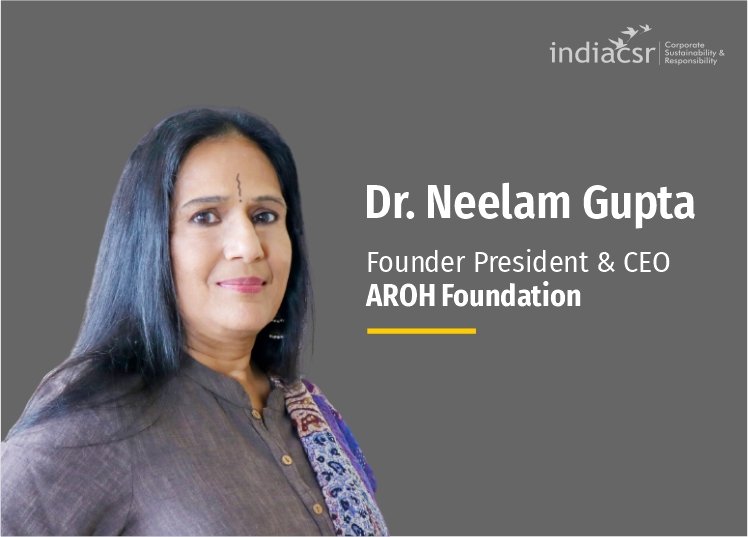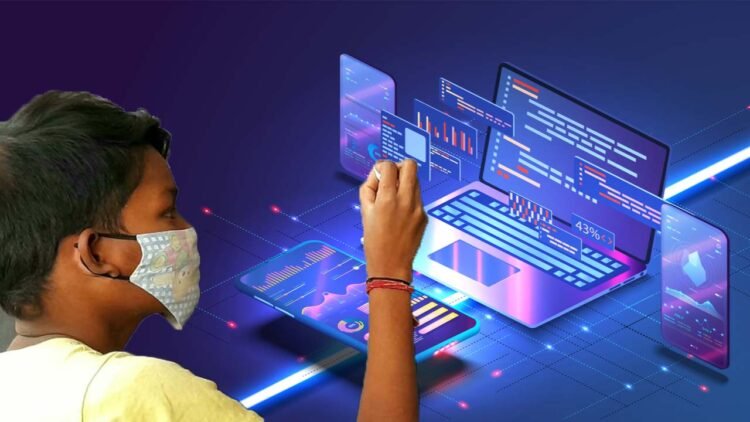National Education Day: The current crisis is reminding us how crucial public education is in societies, communities, and individual lives.
The global health pandemic has shined a harsh light on the vulnerabilities and challenges humanity faces. Not just health-wise, but nationwide lockdown in March 2020 forced schools and colleges to close and instructed students to abandon the usual classroom teaching style. Since then, the education system in India has been jeopardized. According to studies, the epidemic has denied almost 32 crore students an education. This is being referred to as a national crisis, with an increase in unemployment too as a result.
Let us not ignore the impact on girls, who have recently begun to defy educational conventions and have been seen dropping out of schools in large numbers. Girls and young women were the first to be removed from school and the last to return. In extreme circumstances, the fall rate of poverty was recorded at 8% of GDP, resulting in additional reasons such as unemployed families who couldn’t afford fees and resources being forced to stop their children’s education due to debts, and so on. Boys were requested to work as daily wage employees, while girls were assigned to home chores, prompting the government to ask a series of questions to stimulate emergence.
It is evident that we cannot return to the normal teaching-learning methods, as was before. Along with the shift from classrooms to computer screens almost all aspects of learning are being tested. Format of instruction, attendance, evaluation, the role of technology, and human interaction are all being re-imagined and there is a growing possibility that some of these changes will last. This resulted in an immediate increase in innovation and technology, which the teachers used to finish the curriculum.
However, due to a lack of infrastructure, productivity suffered. Remote learning was not available in every family; according to the Global internet network research, only 11% of learners in India have a household computer and only 18% have household internet. As a result, the government was forced to ensure that sufficient benefits and monetary funds were provided. This has also highlighted many weaknesses and vulnerabilities, including accentuation of inequality, risks that follow from the privatization of education, and just how unprepared we were for a massive shift to digital and distance learning.
On the other hand, a blessing in disguise has been the much-needed digitization of the Education System, which shall break boundaries of the physical availability of schools, colleges, or learning centres in remote locations. It shall also reduce running costs, eventually decreasing fees, and connecting experts on the go of a click.
Also, we are seeing solidarity and a strong, resilient response to challenges in many societies. We are seeing increased attention to the public good. And, we are seeing resourcefulness, dedication and creativity from the many teachers, families, and students who are collaboratively building remarkable learning experiences.
According to ASER (Annual Status of Education Report), they have demonstrated with verifiable data that parents, even in rural areas, have shown full interest in their children’s education despite the minimal resources available to them. As a result, this demonstrates a promising aspect of the educational system in terms of raising government awareness to meet their demands.
On the plus side, with the increased use of webinars, conferences, and financial aid through volunteer organizations, things have improved over time. The goal was to create a traditional educational environment using digital technology. One of the sole tasks in the next years will be to take necessary safeguards to safeguard children while also affiliating them with teaching aids, as this creates the groundwork for an upcoming mode of educational growth.
The government of India is also taking every possible step to make this shift as swift as possible, publishing information on various initiatives undertaken by ministries like MHRD, Department of Technical Education, NCERT and others to support and benefit youth/students. The government of India as well state governments, through their various ministries/departments, have created infrastructure to deliver e-education.
These include National Knowledge Network (NKN), National Project on Technology Enhanced Learning (NPTEL), National Mission on Education through Information and Communication Technology (NMEICT), National Academic Depository (NAD), among others. All these enhance ability to connect easily with institutions and enhance access to learning resources. The NEP 2020 also focuses on digitization as the core of the new Teaching-Learning Methodology and emphasize Skill & Outcome-based learning than the theoretical mugging of the curriculum.
The NEP has also very briefly described the modus operandi that shall be followed to gain this shift. Along with cohesion in Public-Private Partnership, we have to take proper remedial measures with a sense of urgency and create better learning environments for rural children so that they are able to participate in the nation-building process and reap the full potential of our demographic divided. Decisions made today in the context of COVID-19 will have long-term consequences for the future of education.
The current crisis is reminding us how crucial public education is in societies, communities, and individual lives. We have been reminded that education is a bulwark against inequality—and of the importance of schooling in enabling lives of dignity and purpose. As we embrace this exceptional opportunity to transform the world, and as we reimagine the organization of our educational institutions and learning environments, we will need to think about what we want to become. We have arrived at a moment—however unexpectedly—where collectively revisiting the purposes of education and organization of learning has become imperative.
About the Author

Dr. Neelam Gupta Founder President and CEO, AROH Foundation. Views are personal.
(India CSR)























